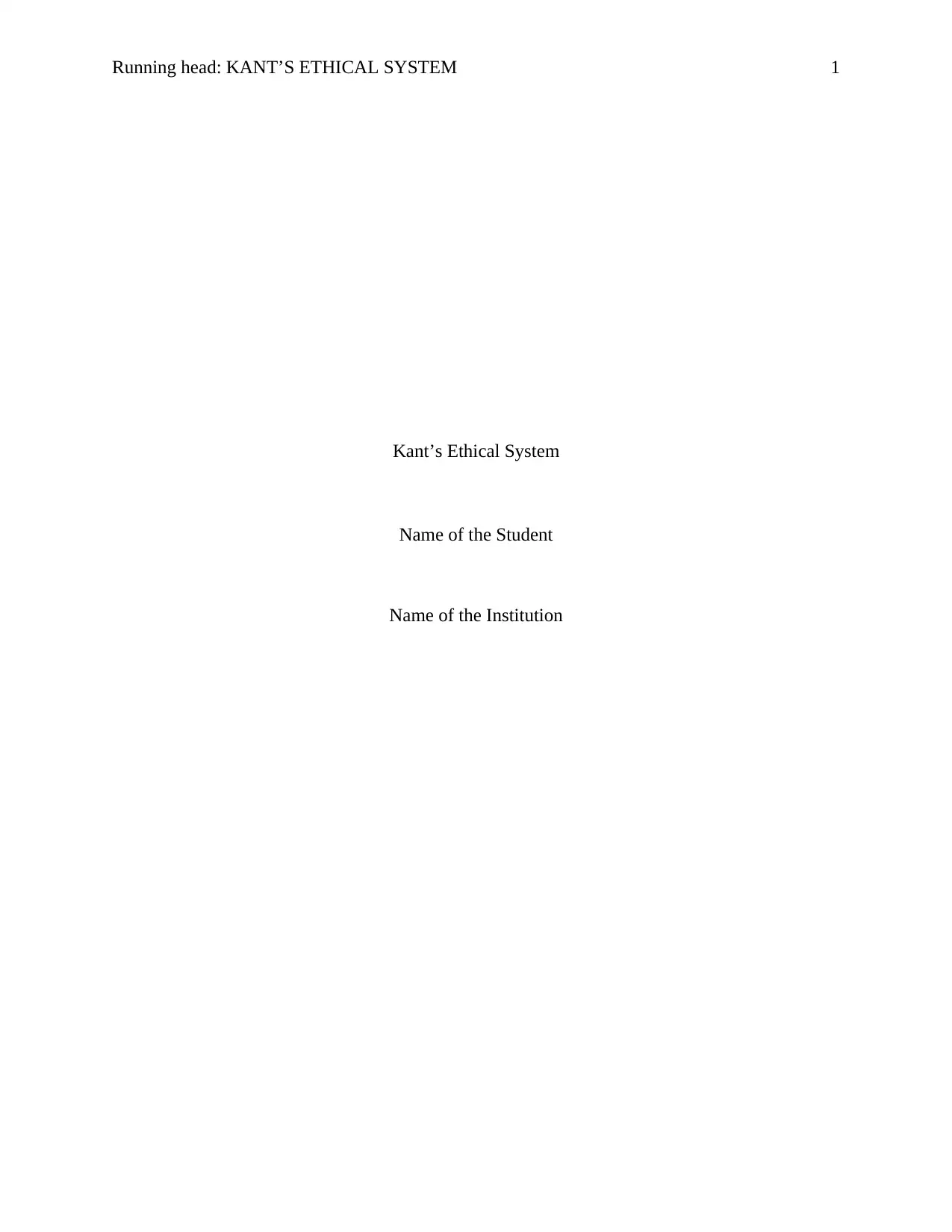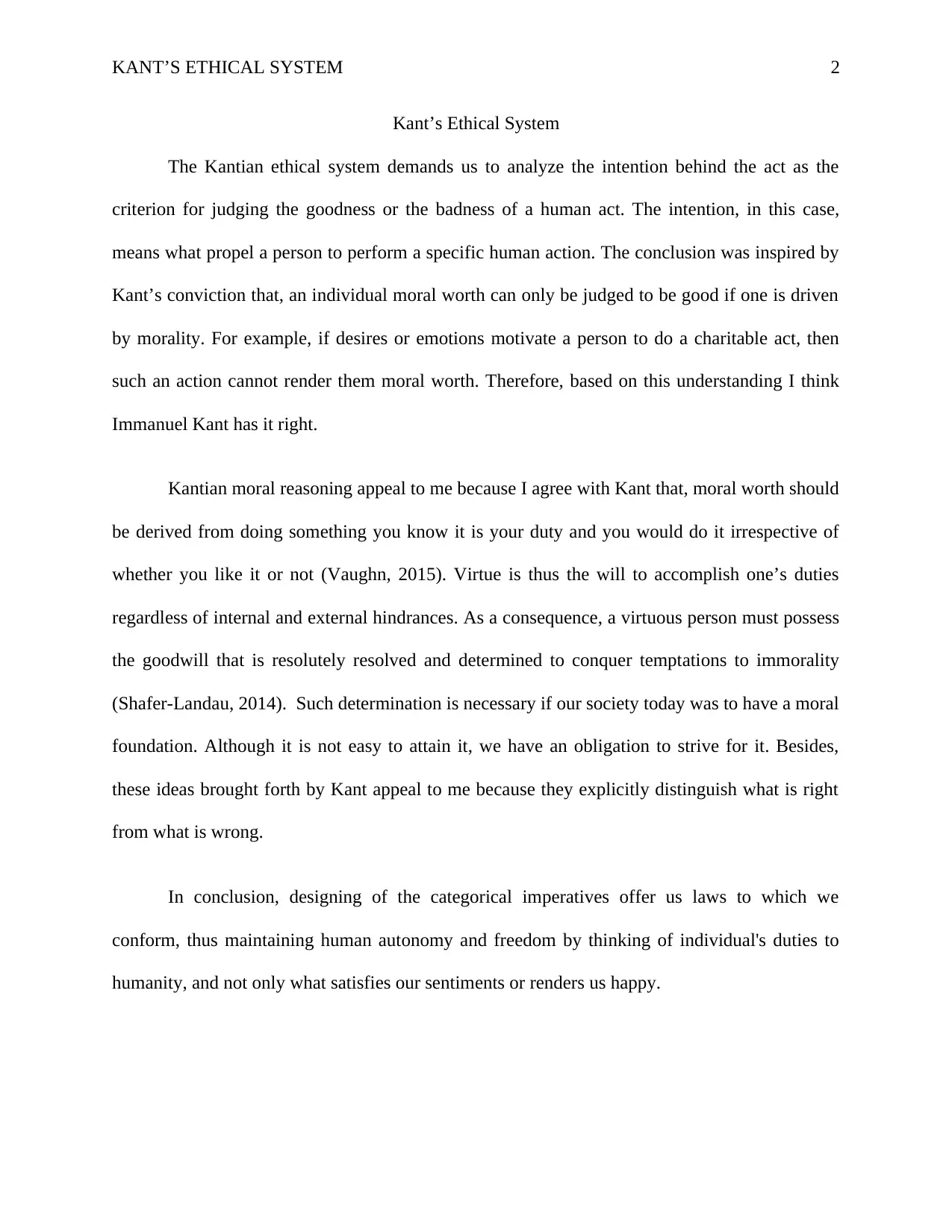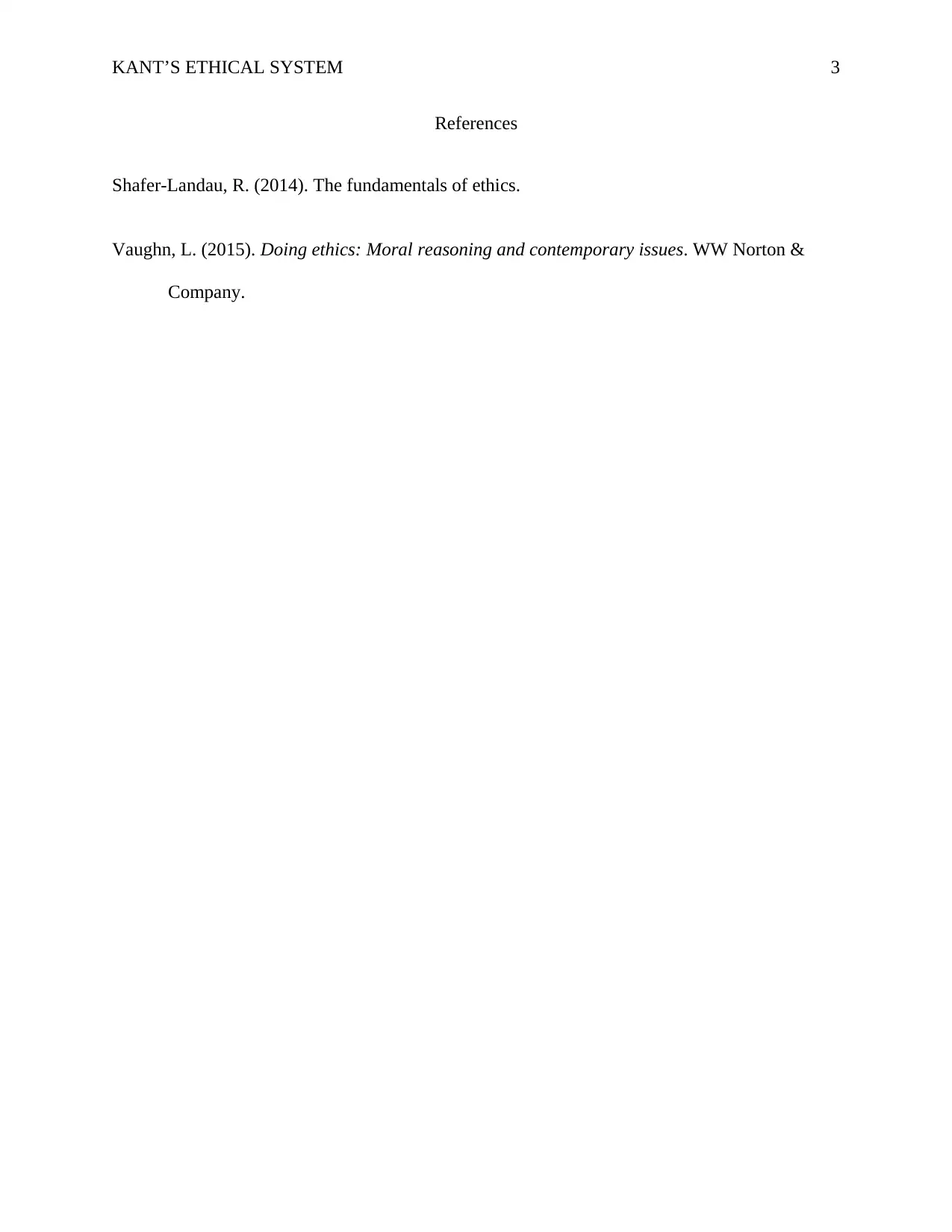Kantian Ethics: Exploring Moral Philosophy and Virtue
VerifiedAdded on 2020/04/07
|3
|375
|35
Essay
AI Summary
This essay delves into the core tenets of Kantian ethics, examining the moral philosophy of Immanuel Kant. It explores the importance of intention in determining the moral worth of an action, arguing that actions driven by duty, rather than personal desires or emotions, are truly moral. The essay highlights the significance of virtue, defined as the will to fulfill one's duties despite challenges, and emphasizes the need for a resolute commitment to morality. Furthermore, the essay discusses the implications of Kant's ideas, particularly the categorical imperatives, in establishing a moral framework for society, emphasizing human autonomy and the duties individuals have to humanity. The essay concludes by advocating for the practical application of Kantian principles in contemporary society.
1 out of 3









![[object Object]](/_next/static/media/star-bottom.7253800d.svg)